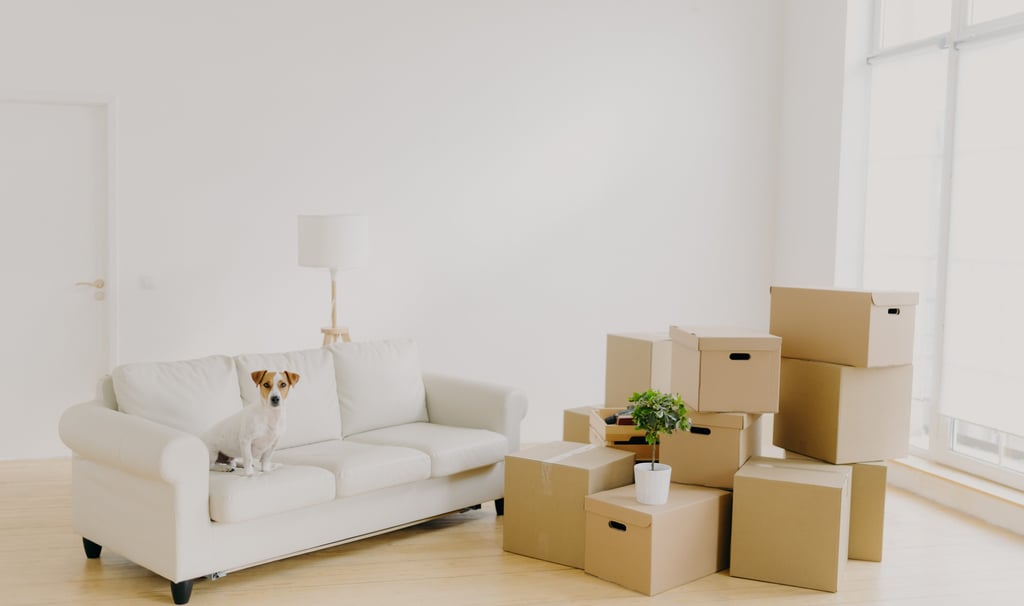Relocating Your Household to Argentina: Customs Rules
Moving to Argentina with your household goods? Learn about customs regulations, required documents, duty exemptions, and what expats need to know for a smooth relocation.
EXPATSRELOCATION
4/30/20252 min read


Moving to Argentina with your entire household is a big step—and knowing what to expect from customs can save you time, money, and stress. Whether you’re shipping a container full of furniture or just a few personal items, understanding Argentina’s import rules is essential for a smooth relocation.
This guide walks you through the key customs implications of bringing your belongings into the country as an expat.
📦 Can You Bring Your Household Goods Into Argentina?
Yes, Argentina allows foreigners with legal residence status to import personal household goods duty-free—but there are strict conditions. If you’re coming to live in the country long term (for example, with a temporary or permanent residency visa), you’re allowed to ship used personal effects without paying import taxes.
✅ Who Is Eligible?
To qualify for tax exemptions, you must meet the following conditions:
Be a legal resident (temporary or permanent) of Argentina
Be relocating your primary residence to Argentina
Have lived outside Argentina for at least one year
Be importing used personal items for your own use (not for resale)
You’ll also need to enter the country within a specific timeframe relative to your shipment—usually within 90 days before or after the arrival of your goods.
📝 What Documents Do You Need?
Here’s what you typically need to provide to customs authorities:
Passport and valid residency visa (temporary or permanent)
DNI (if already issued)
Detailed inventory of all items being imported (in Spanish)
Bill of lading or airway bill
Proof of residency abroad for the last year (e.g., utility bills, rental agreements)
Signed declaration confirming items are for personal use
You’ll likely need a customs broker to handle the formal import process on your behalf.
🚫 What Items Are Prohibited or Restricted?
While most used household goods are allowed, some items are restricted or require special permits, such as:
New items (especially electronics)—may be taxed or held
Food, alcohol, or plants
Firearms or ammunition
Motor vehicles or motorcycles (subject to entirely separate regulations)
Large quantities of identical items, which may look like commercial imports
Make sure you declare all items accurately. Failure to do so could result in delays, fines, or even confiscation.
⛴️ How Should You Ship Your Belongings?
Most expats moving their entire household use ocean freight with a 20- or 40-foot container. If you’re moving fewer items, air freight is faster but significantly more expensive and has stricter weight limits.
Pro tip: choose an international moving company with experience handling customs clearance in Argentina. They can help manage inventory lists, timelines, and port procedures.
💸 Will You Pay Taxes or Fees?
If you qualify under the relocation rules, your used personal items are exempt from customs duties and taxes. However, you may still have to pay:
Port storage fees
Local handling charges
Broker or agent fees
If your shipment includes items that appear new or outside the "household use" category, customs may impose taxes of 50% or more on those goods.
⏳ How Long Does Customs Clearance Take?
Air freight: typically 3–5 business days
Sea freight: can take 1–3 weeks depending on the port and paperwork
Delays are common if paperwork is incomplete or if customs requires additional inspections.
🧭 Final Tips for a Smooth Move
Start early – Preparing documents and working with a customs broker takes time
Use a reputable international mover familiar with Argentine customs
Don’t pack new items if you want to avoid taxes
Keep important documents handy – You’ll need them at various stages
💬 Need Help or a Referral?
Planning a big move can be overwhelming, but you don’t have to go it alone. If you have questions about customs, need a moving company recommendation, or want help navigating residency requirements, feel free to reach out—we’re happy to assist fellow expats.
Discover new topics in the editorial repository of Know Argentina
Know Argentina
Discover diverse insights about Argentina's rich culture.
Connect
stay in the loop
info@knowargentina.com
© 2025. All rights reserved.
